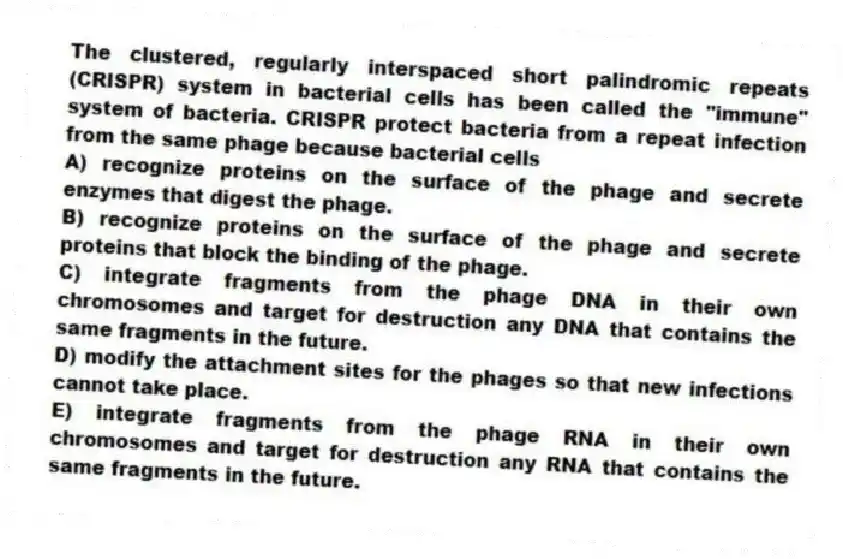
The clustered, regularly interspaced short palindromic repeats (CRISPR) system in bacterial cells has been called the "immune" system of bacteria. CRISPR protect bacteria from a repeat infection from the same phage because bacterial cells
A) recognize proteins on the surface of the phage and secrete enzymes that digest the phage.
B) recognize proteins on the surface of the phage and secrete proteins that block the binding of the phage.
C) integrate fragments from the phage DNA in their own chromosomes and target for destruction any DNA that contains the same fragments in the future.
D) modify the attachment sites for the phages so that new infections cannot take place.
E) integrate fragments from the phage RNA in their own chromosomes and target for destruction any RNA that contains the same fragments in the future.
Correct Answer:
Verified
Q72: A patient comes to see you complaining
Q73: You make two agar plates: one is
Q74: A patient comes to see you complaining
Q75: The restriction-modification system always has two genes
Q76: Please select the INCORRECT statement regarding mutation.
A)
Q77: You mix two bacterial stains in a
Q79: A bacterial strain is resistant to infection
Q80: If you were carrying out a penicillin
Q81: You are a volunteer for Nurses Without
Q82: Not all bacteria can take up DNA
Unlock this Answer For Free Now!
View this answer and more for free by performing one of the following actions

Scan the QR code to install the App and get 2 free unlocks

Unlock quizzes for free by uploading documents